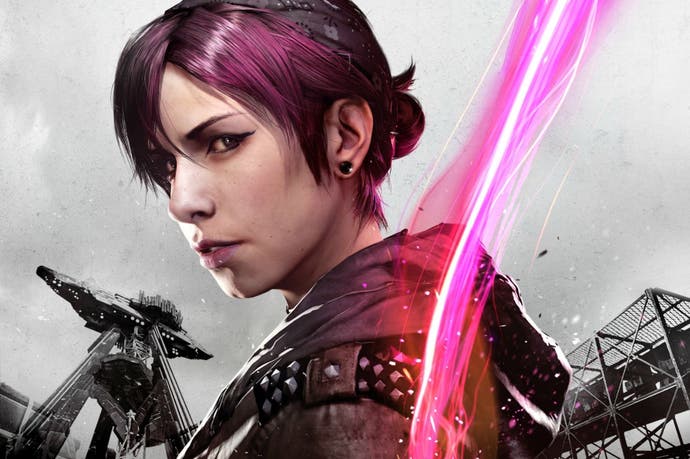inFamous: First Light review
Playing Fetch.
When is DLC not DLC? When it's also a standalone game. That's the case for First Light, in which you play as Abigail "Fetch" Walker, a character you met in inFamous: Second Son - unless you didn't play it. This game doesn't really mind one way or another, and although the broader context of inFamous' world of Conduits and DUP will be hard to discern from this bite-sized spin-off, there's no reason it can't serve as your introduction to the series.
A prequel, First Light switches between two time periods. One takes place just before the events of Second Son and finds Fetch being quizzed and trained by Augustine, scheming head of the Department of Unified Protection, in the secret Curdun Cay base. The bulk of the game is set two years prior, on a smaller version of the same Seattle map from the original game, and explains how Fetch came to be in DUP custody.
As a framing device, the split serves its purpose and also allows for new powers to be introduced and mastered without clogging up the core storyline. Rather bizarrely, it does mean you're learning new powers in the future that you then use in the past, but the game explains this by saying that Fetch is holding out on Augustine and not revealing her full range of powers. That's a weird decision, since these powers are useful and there's no reason why she wouldn't use them in the past. It doesn't make any difference in gameplay terms, of course, but it's a shame you have to disengage from the story's timeline in order for it to make sense.
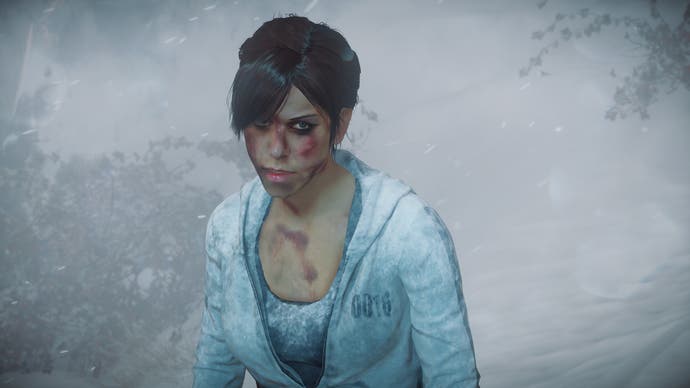
That story is basic, though still fairly effective. We meet Fetch as she's planning to ditch Seattle for good, but her mohawk-sporting brother, Brent, wants to do one last robbery so they can afford a better new life in Canada. The pair have been sleeping rough, with Fetch keeping her powers locked down so as not to attract attention. She's recently overcome heroin addiction thanks to her brother's patience and devotion.
You can tell it's all going to go horribly wrong, and it does. Cops catch them loading their boat and Fetch uses her powers for the first time in years to draw them away from Brent. This introduces her neon-themed power set to the player - not least her ability to transform into a blaze of light that can race along city streets and up vertical walls - but also leaves Brent exposed. When she returns, the boat is destroyed and Brent is nowhere to be seen.
That sets up the rest of the storyline, in which Fetch undertakes missions for a laconic Texan hoodlum called Shane, the man Brent was working for, who promises to help Fetch find him. What follows is a four-hour-ish campaign of missions that take in all the expected objectives: dashing to waypoints, killing lots of dudes, protecting more dudes by sniping from afar and taking part in several car chases where you stand on the roof of a van and blow up the vehicles that are chasing you.
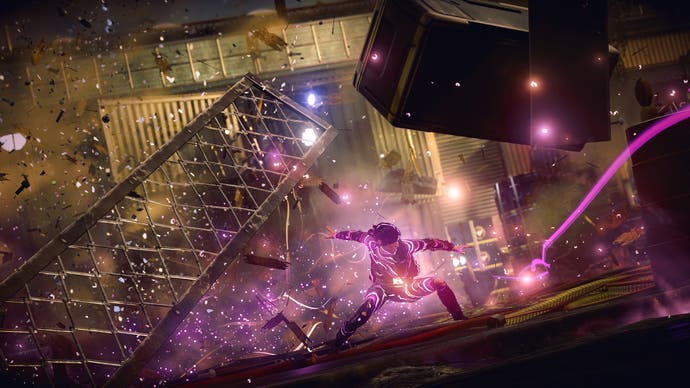
There are also a small handful of optional activities. Much like Delsin Rowe in Second Son, Fetch can blast graffiti onto marked walls, though she does so in glowing neon lines. There are races against glowing balls of light called Lumens. Later on, you can take down police drones, hacking into the camera to work out where they are. There are also drive-by shootings and civilian hostage situations to foil. All will help you to earn Skill Points, which are then traded to evolve Fetch's neon powers.
This is sandbox gaming on fast forward, however, and it takes very little time to start maxing out those skill trees. The abilities on offer are effective, but never surprise or innovate. The swirling neon streaks that follow Fetch's sprints and strikes are lovely to look at, but they don't mask the fact that you're not doing anything particularly new.
It's also hard to make any complaints of repetition stick, because this is, after all, just DLC presented as a standalone game. It's inherited all of Second Son's strengths - the effortlessly fun traversal, the slick, eye-popping combat - but also all of its weaknesses.
That means mission design that rarely approaches the boundaries of its genre, let alone pushes against them, and a world that feels lifeless and fake. Seattle is lovingly recreated, right down to the prominent Sub Pop ads, but is populated by civilians who barely react to what happens around them. You never get a sense of the city as a place or feel that it reacts to your actions. It's simply a collection of boxes and action figures that you blaze through.
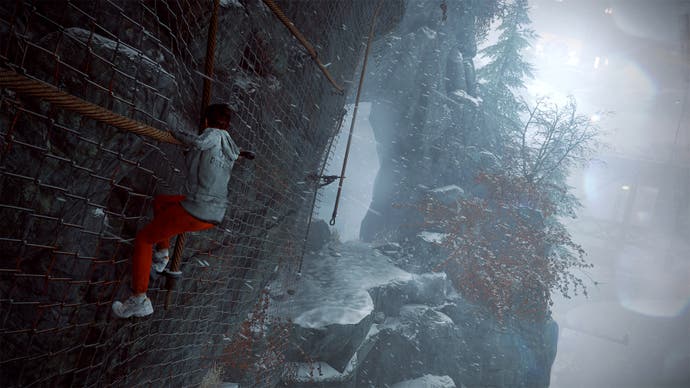
It's here that First Light's truncated size almost becomes a benefit. The sandbox has been even more susceptible to bloat than other blockbuster game genres, yet here's one you can polish off in an afternoon without worrying about the dozens of side missions and hundreds of collectibles you've not even bothered with. There's something to be said for that, regardless of how slender the experience can feel.
The writing and acting are, at least, pretty good. Fetch is an enjoyable character to be around and, while the story isn't noticeably different to those in similar games, she at least makes for a welcome change of perspective from the usual snarling male hero. Outside of Shane, though, there really aren't any other characters of note, beyond a hacker named Jenny who dangles the possibility of an interesting team-up only for it to be removed from the table before it bears fruit.
The ending is where First Light really stumbles, as it swaps the Seattle sandbox for an entirely linear and repetitive slog through enemy-packed, snowy corridors. It culminates in what is presumably supposed to be an echo of the binary moral choices that Delsin faced, only here there is no option. Fetch's path is already written, but the game still waits for you to press a button - a mockery of interaction at the moment when choice is most needed.
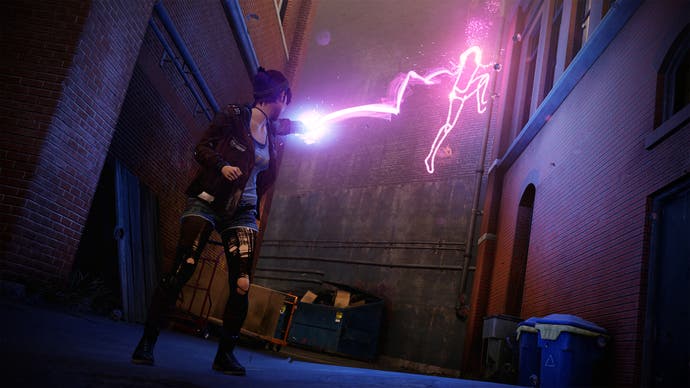
Past that finale, the game justifies its existence with a smattering of overcharged new powers and a suite of combat arenas in which to earn the Skill Points needed to unlock them. These are all tied to leaderboards, so there's a competitive element as well. Battling wave after wave of identikit grunts and holographic monsters isn't particularly exciting, but it does at least extend First Light beyond an afternoon.
First Light's weird, limbo nature makes it a hard one to pin down. Considered as a DLC add-on, it's pretty generous and fans of Second Son will certainly appreciate the extra backstory and another chance to romp around Seattle. As a standalone game, it earns points for trimming the fat from the open-world template, but is also as generic as they come. First Light is an adequate diversion for fans but unlikely to dazzle anybody else.
